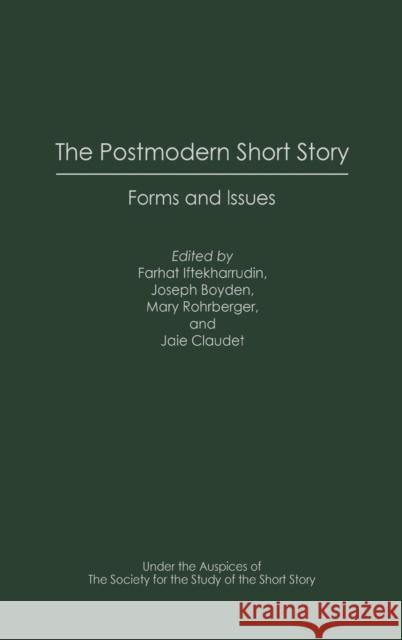The Postmodern Short Story: Forms and Issues » książka
The Postmodern Short Story: Forms and Issues
ISBN-13: 9780313323751 / Angielski / Twarda / 2003 / 296 str.
Short stories are usually defined in terms of characteristics of modernism, in which the story begins in the middle, develops according to a truncated plot, and ends with an epiphany. This approach tends to ignore postmodernism, a movement often characterized by a negation of objective reality where plots are seemingly abandoned, surfaces are extraordinary, and symbols turn inward on themselves. This book examines postmodern forms and characteristic themes by analyzing a group of short stories that make use of postmodern narrative strategies, including nonfictional fiction, gender profiling, and death as an image. The volume begins with a discussion of the blurred lines between fiction and nonfiction in the short story and imaginative personal essay. It then looks at the role of women in works by such authors as Sandra Cisneros, Leslie Marmon Silko, Joyce Carol Oates, and Lorrie Moore. This is followed by a section of chapters on postmodern masculinity and short fiction. The next section focuses on death as an image and theme in works by Richard Ford, Richard Brautigan, and James Joyce. The final set of chapters considers postmodern short fiction from South Africa and Canada.











